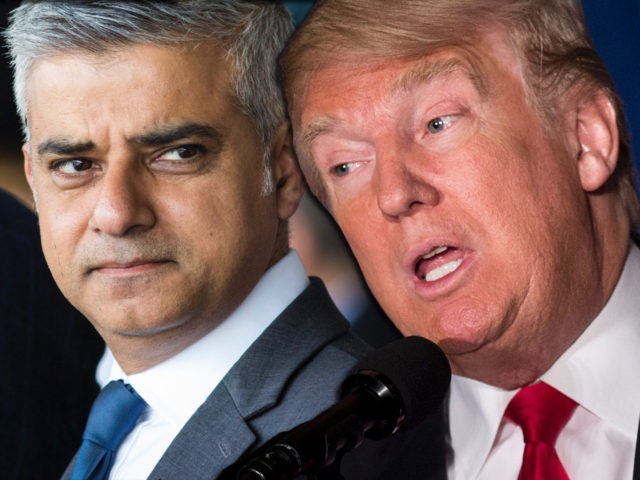The Economist magazine has insisted that Sadiq Khan’s win at the recent London mayoral elections is a rebuke to Donald Trump and Nigel Farage – a consequence of the success and outspokenness of nationalists around the globe.
In an article in this week’s edition of the left-leaning, pro-global governance mag, the respected ‘Bagehot’ column decides:
His landslide over the Conservatives… was a rebuke to hardliners of all sorts. At a stroke it became harder for Islamic State’s recruiters to tour public housing estates in Europe and convince young Muslims from immigrant backgrounds that they have no place in the liberal West. The de facto capital of that liberal West had just entrusted its future to a mosque-going, gay-marriage-supporting, proudly Muslim family man with precisely such a hinterland.
Of course, anyone with anything close to expertise in radicalisation and Britain’s young Muslims would be able to tell you that a gay-friendly Muslim mayor is unlikely to lure anyone away from hardline interpretations of Islam, and the threats that come along with it.
In fact, with 52 per cent of Britain’s Muslims thinking homosexuality should be illegal, and with young Muslims far more fundamentalist than their parents or grandparents they are likely to see Mr. Khan more as a traitor than a role model.
This is something the article alludes to at the end, but contradicts the above statement. It says: “In some corners of Britain, Muslims are dangerously cut-off and not like Mr. Khan at all.”
But Bagehot continues:
His win was also a rebuke to Western nativists like Donald Trump and Nigel Farage, the leader of the UK Independence Party. It gave the lie to the nonsense spouted by visitors to Europe who see a woman wearing a niqab and assume the continent is under sharia law.
Except there are sharia courts in Britain, and it seems strange, if not suspect, that the Economist would seek to cover this up rather than confront the issue. But then it becomes somewhat clear: Bagehot and Khan are friends, perhaps:
Bagehot first crossed paths with Mr. Khan almost a decade ago on the south London political scene, and long saw him in terms of the internal politics of the Labour Party: as a typical social democrat who, more ideologically flexible than most, had settled on the party’s centre-left at a time when, after a decade of liberal-right dominance under Tony Blair, that was trendy.
…
Mr. Khan’s win on May 5th was truer to the MP-next-door that Bagehot knows than to the cosmopolitan emblem—or hardline Muslim—of global headlines. And therein lies the real hammer-blow to the Trumps and Farages.
And no mention throughout the entire article of London’s real first Muslim mayor – Lutfur Rahman – who commentators fawned over just the same when he took control of the London borough of Tower Hamlets in 2010.
Mr. Rahman was unceremoniously turfed and banned from public office after being found “personally guilty” of “corrupt or illegal practices, or both” by a court.
And no mention by Bagehot of Mr. Khan’s links to 9/11 terrorists and anti-Semites, except to say that his opponent, Zac Goldsmith, had no luck in trying to draw this to the London public’s attention.
Instead, the Economist quotes the European Union-funded British Future think tank, stating:
According to Sunder Katwala of British Future, a think-tank, Mr. Khan’s achievement alludes to the “depolarisation” of society. It will be judged on how he uses it… But the greatest impact he could have as mayor would be further to normalise his initial achievement.
The piece ends, referring to the time Mr. Khan left a Quran in Buckingham Palace: “Donald Trump will probably lose to Hillary Clinton. But his final defeat, in Britain at least, will come when Mr. Khan’s copy of the Koran in Buckingham Palace is well-thumbed—and no one cares.”
https://twitter.com/RaheemKassam/status/730135549286043648

COMMENTS
Please let us know if you're having issues with commenting.